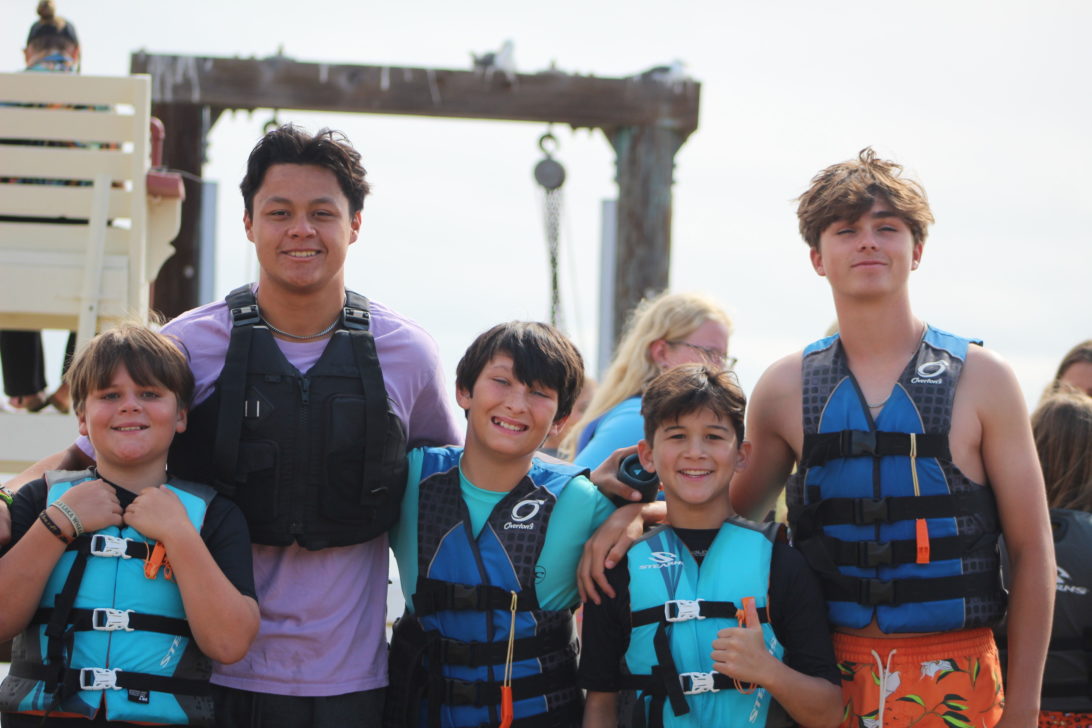Should My Child Go to Sleepaway Camp with a Friend?
Sleepaway Camp with a Friend?
This is a great question, and the answer really depends on what you want your child to gain from the camp experience — as well as their personality and comfort level. Here are the pros and cons of each option:
Pros and Cons of Going to Summer Camp with Friends
Pros:
- Comfort and Security: Having familiar faces around can ease the transition into camp life, especially for first-time campers or kids prone to homesickness.
- Built-in Social Circle: Your child will already have a set of friends in place and a convenient group to connect with.
- Increased Confidence to Try New Things: Having a friend may give your child the added courage to try new activities they might otherwise avoid alone.
- Shared Memories: Attending camp with a friend can strengthen their bond and create lifelong memories together.
- Easier Transition: Kids may settle in faster and be less anxious when they know someone from home is with them.
Cons:
- Limited Social Growth: Your child may stick closely to their friend instead of branching out and making new friends. This can prevent them from developing strong social skills or expanding their social circle.
- Dependence: Kids may become reliant on their friend and struggle if their friend is placed in a different cabin, makes other friends, or has a different schedule.
- Friendship Drama: There’s always the possibility of disagreements, jealousy, or cliques forming, which can cause tension and make camp less enjoyable.
- Missed Opportunity for Independence: One of the key benefits of camp is gaining independence and learning how to navigate new environments — something that’s harder to achieve with a friend as a crutch.

Pros and Cons of Going to Summer Camp Alone
Pros:
- Personal Growth: Attending camp alone can build resilience, independence, and problem-solving skills. It forces your child to step out of their comfort zone and figure things out on their own.
- Social Growth: Without a built-in friend, your child is more likely to meet new people and develop strong social skills. They’ll learn how to introduce themselves, form new friendships, and find their place in a new environment.
- Blank Slate: Without pre-existing friendships, your child can redefine themselves. They won’t be known as someone’s “best friend” or “little brother/sister.”
- Increased Confidence: Successfully navigating a new environment without a safety net often leads to a huge boost in self-confidence.
- New Adventures: Your child may be more open to trying new activities or stepping outside their comfort zone when they’re not concerned about what their friend thinks.
Cons:
- Initial Discomfort: The first day might be a little more challenging for shy or anxious kids.
- Homesickness May Feel More Intense: Without the comfort of a familiar friend, homesickness may feel a little stronger in the first day or so.
- Longer Adjustment Period: Your child might worry that it will take longer to find their “group” and feel comfortable at camp, but camps with experienced counselors are sources of comfort, and most campers make new best friends within hours of arrival.
Should My Child Go to Summer Camp Alone or with Friends?
If your child is naturally outgoing and adjusts to new environments easily, going to camp alone can be an incredible growth experience. They’ll develop independence, social confidence, and resilience.
If your child tends to be shy, anxious, or younger, attending camp with a friend might make the transition easier and ensure they have a positive first camp experience. However, it’s important to encourage them to make new friends, too.